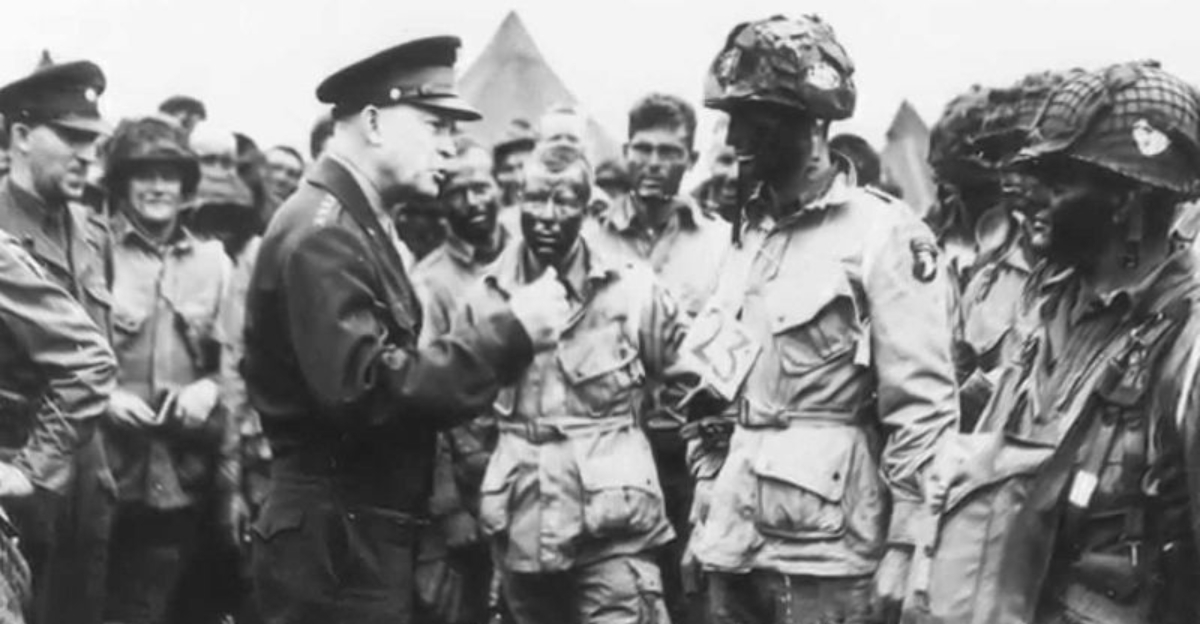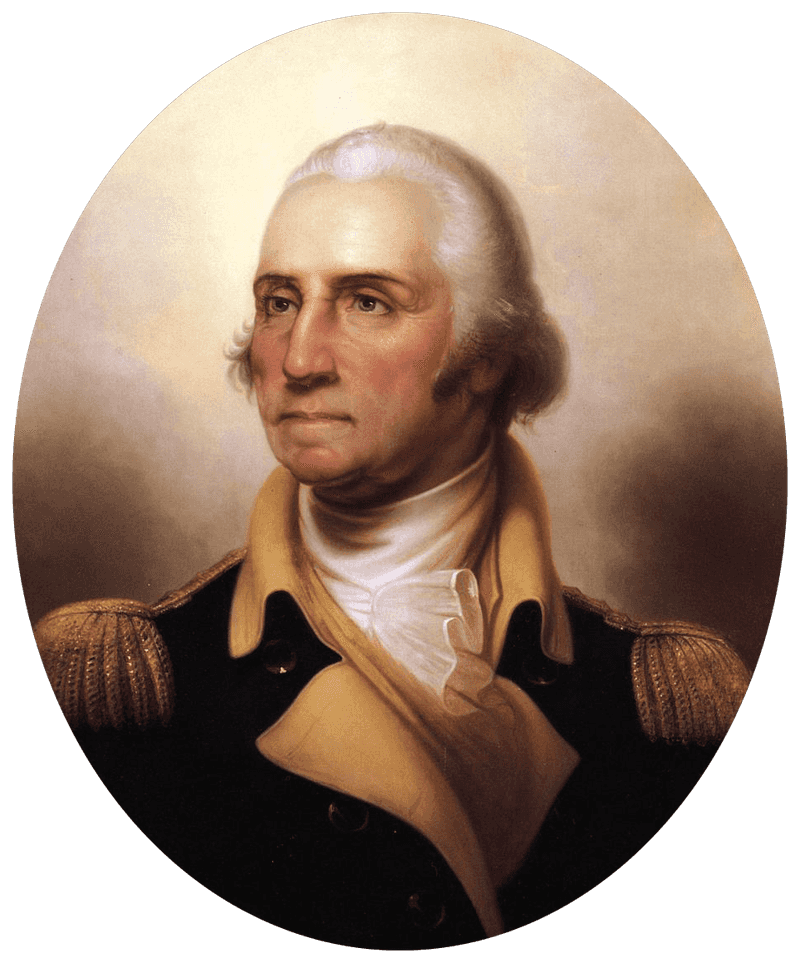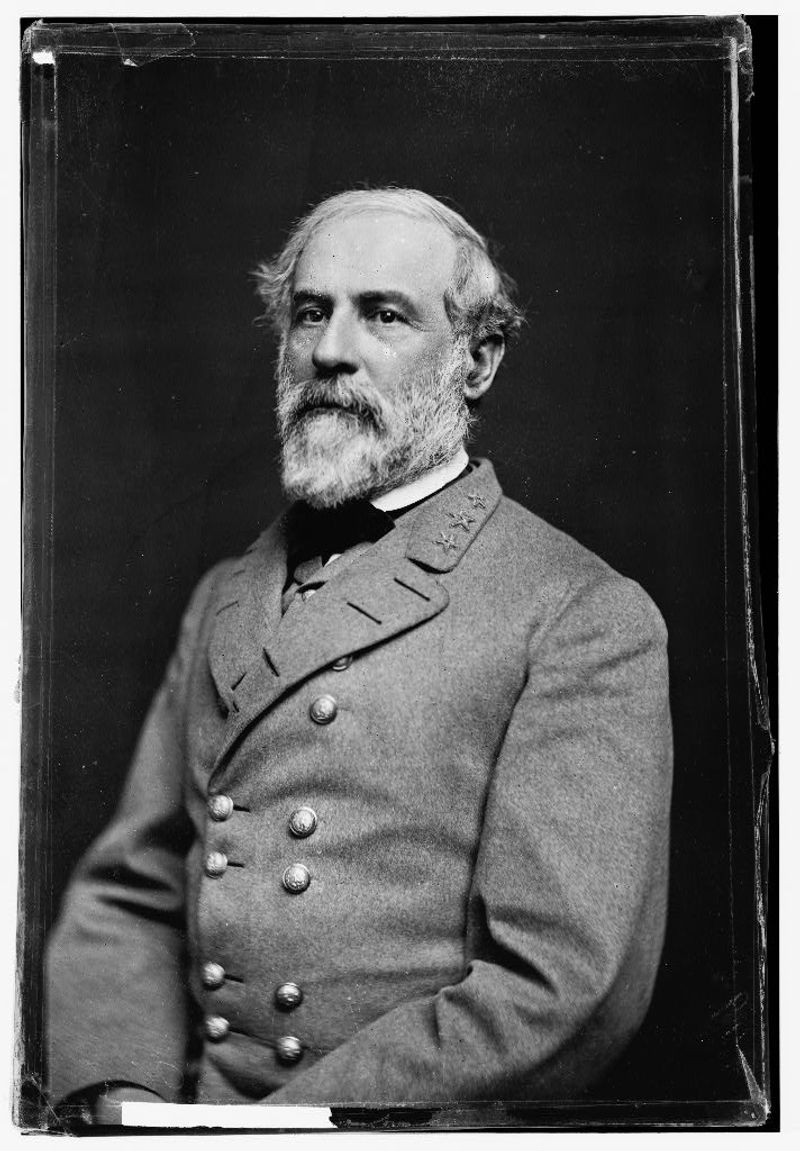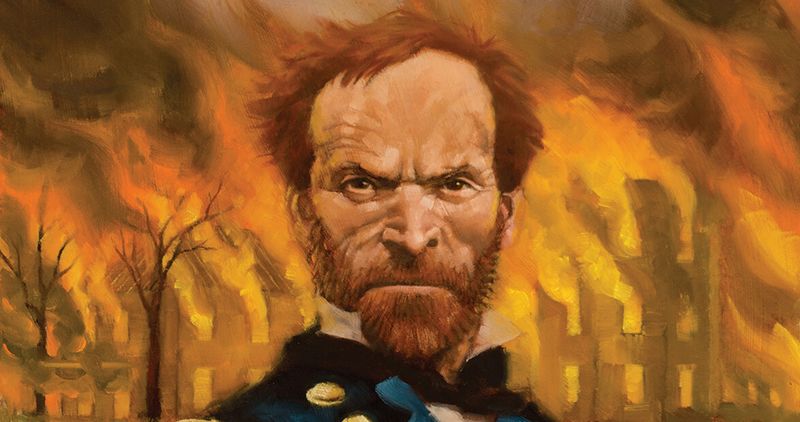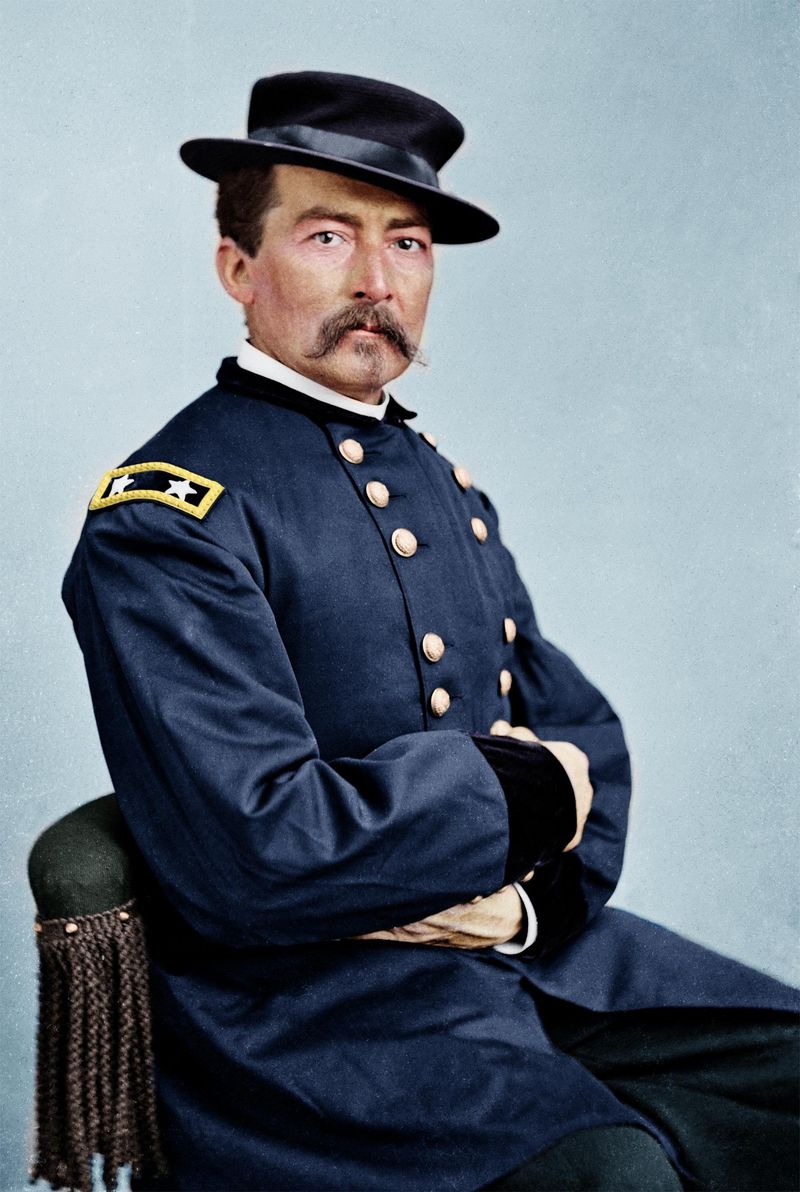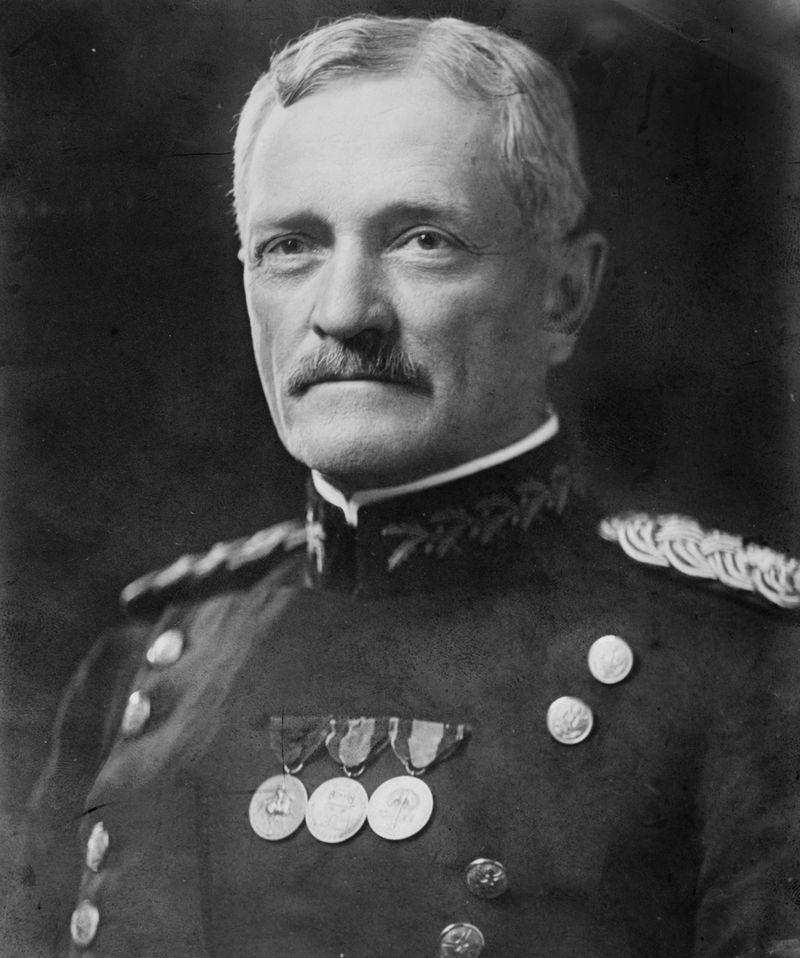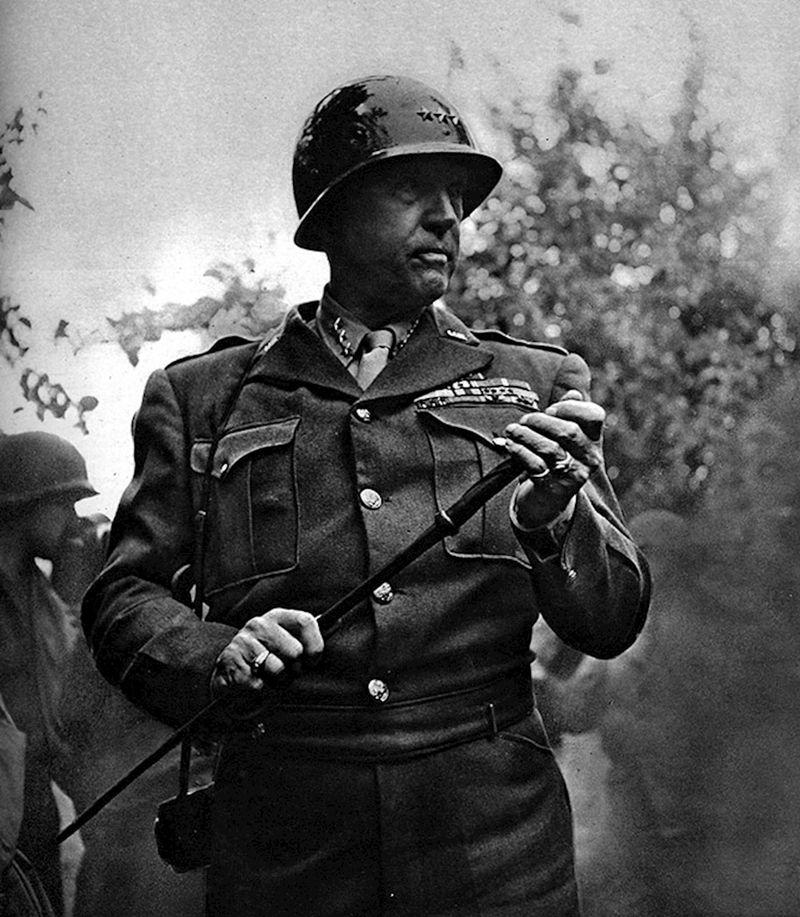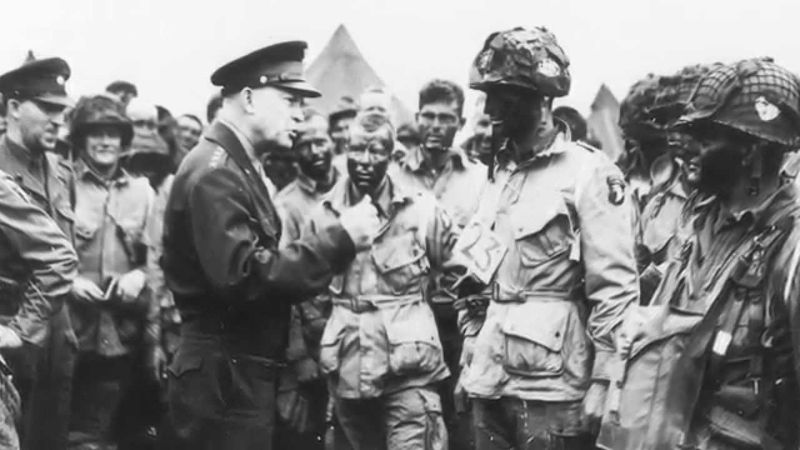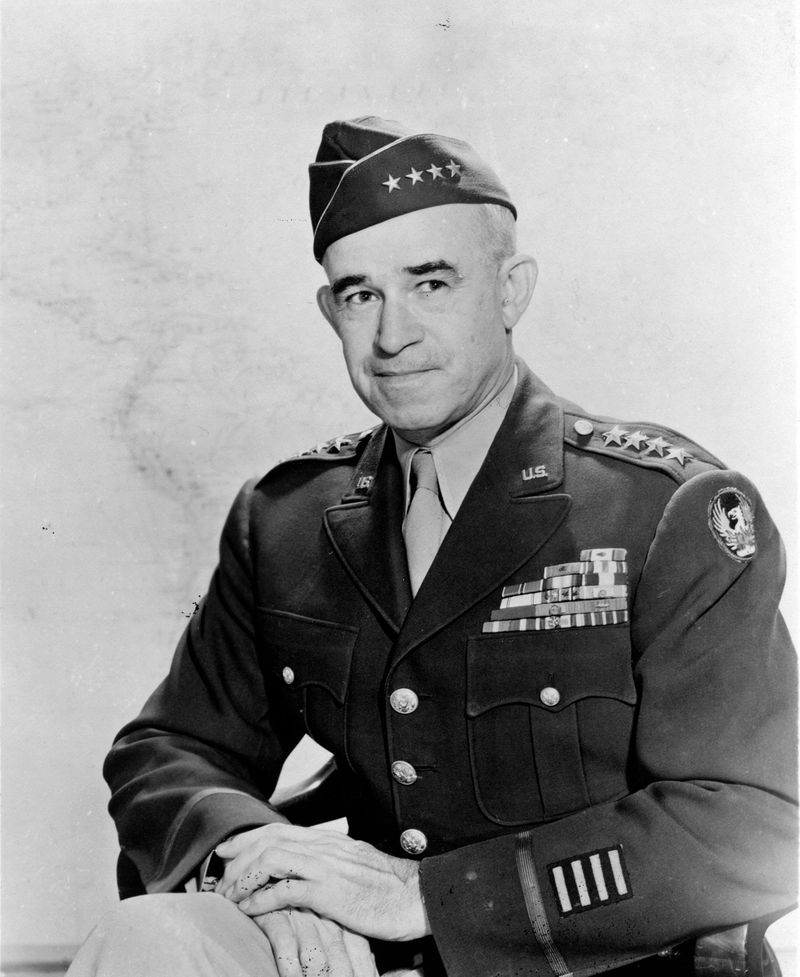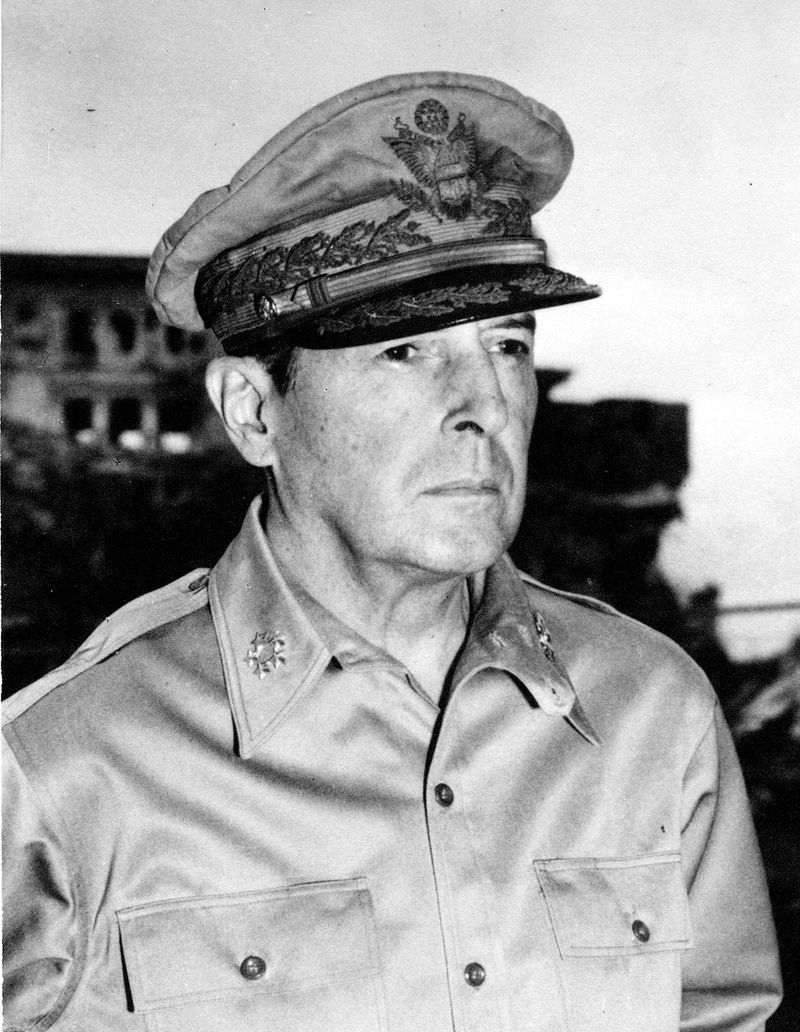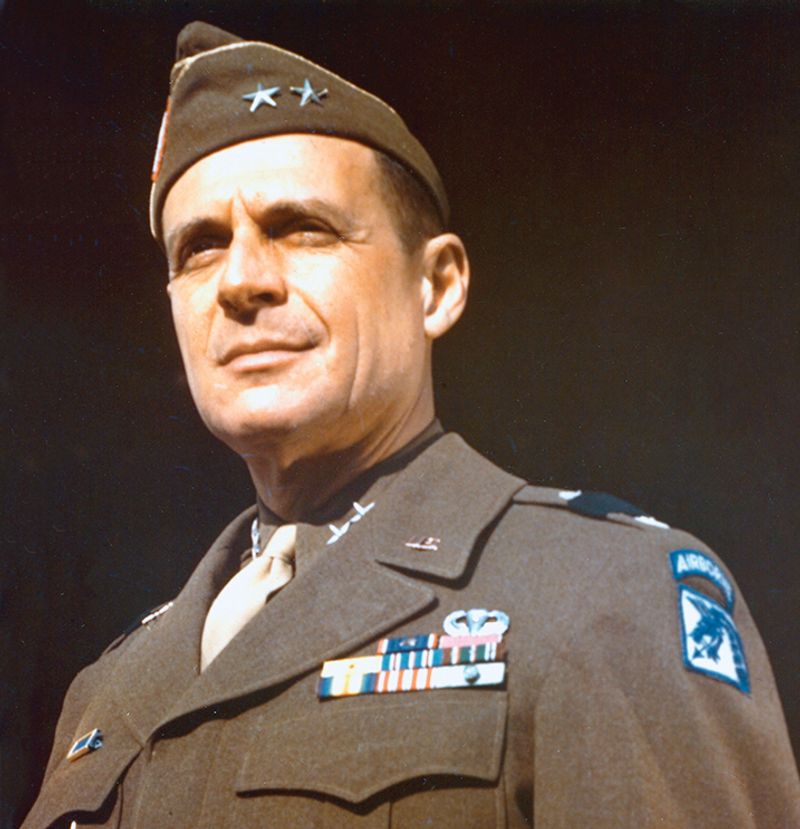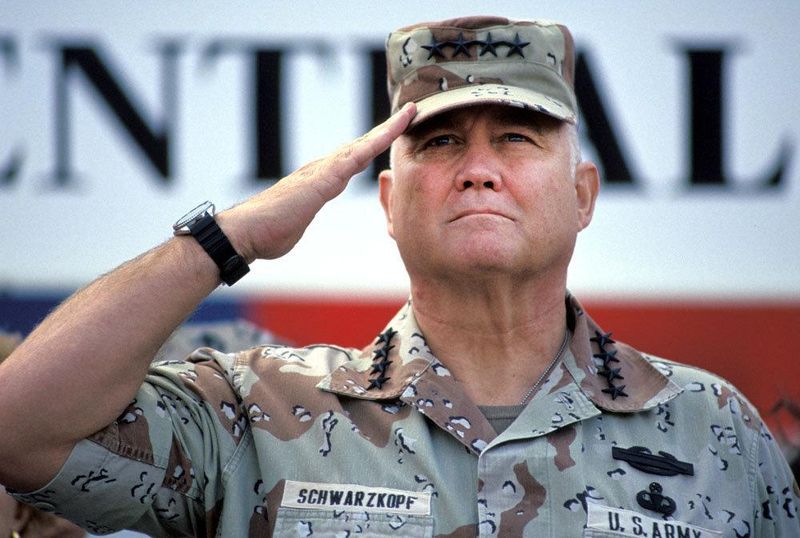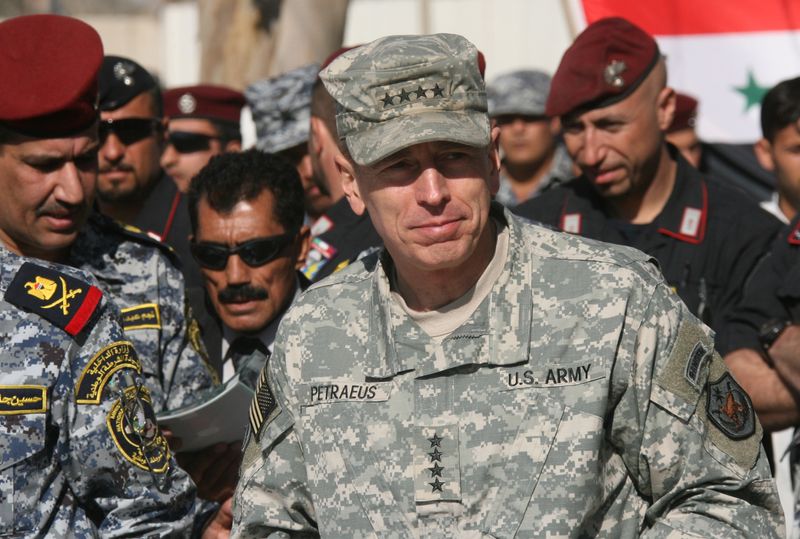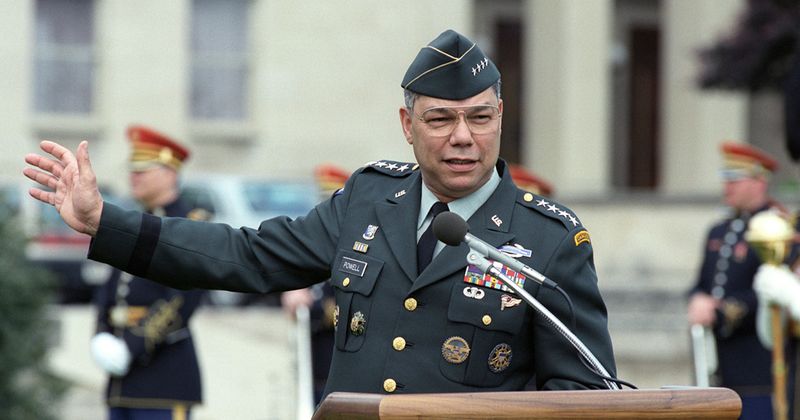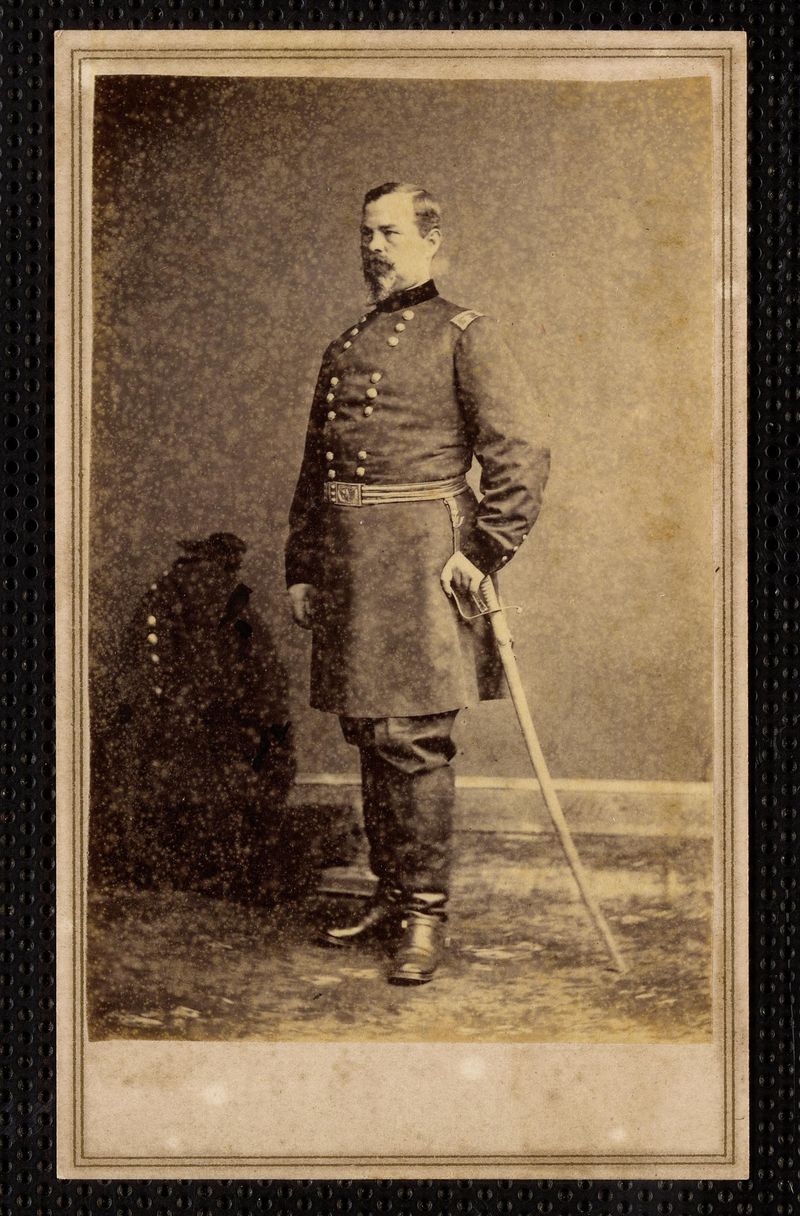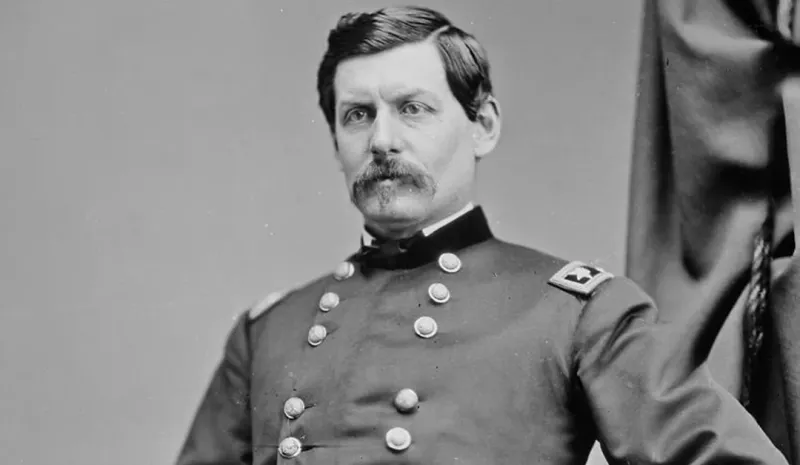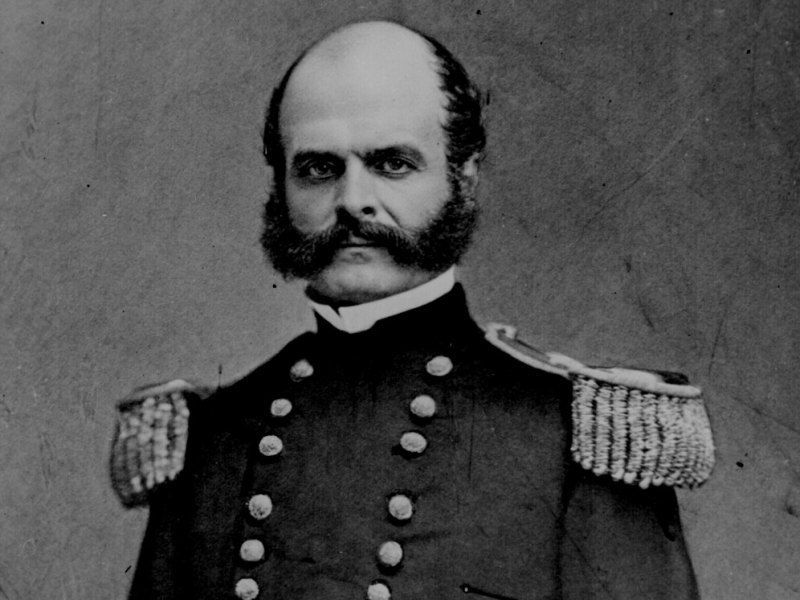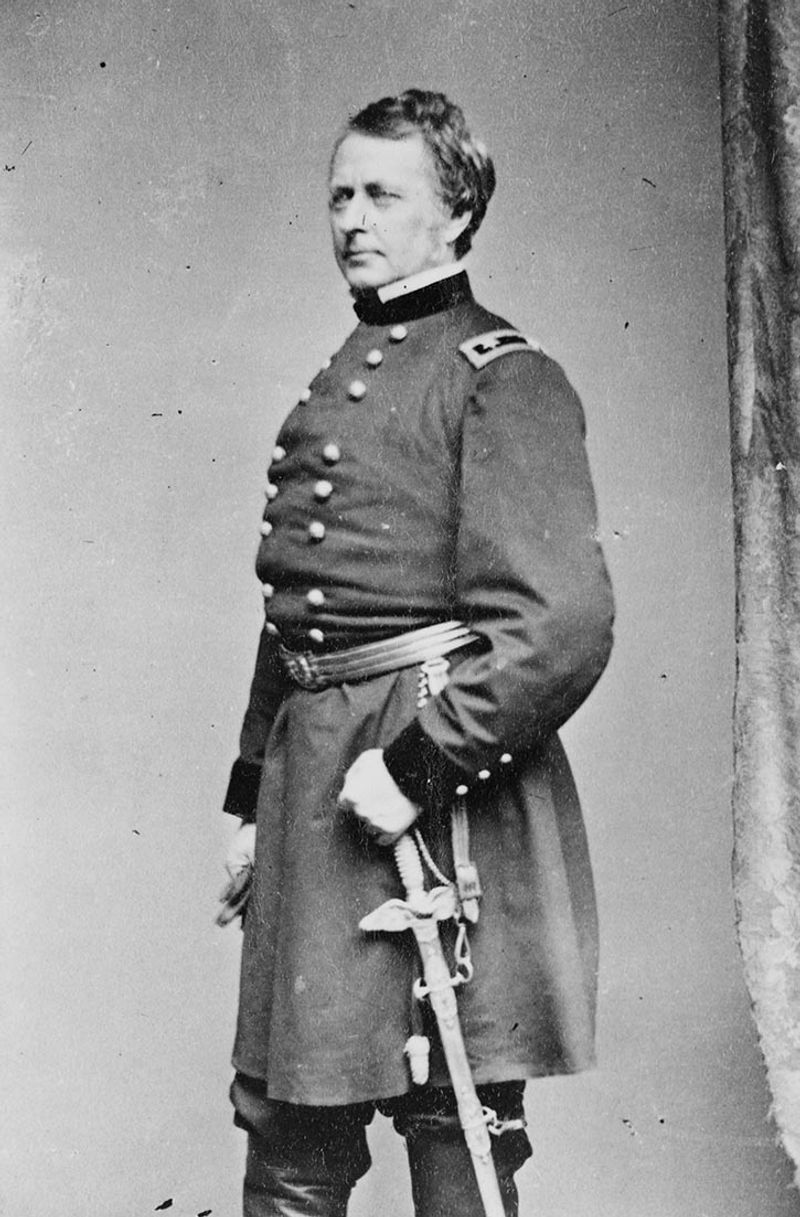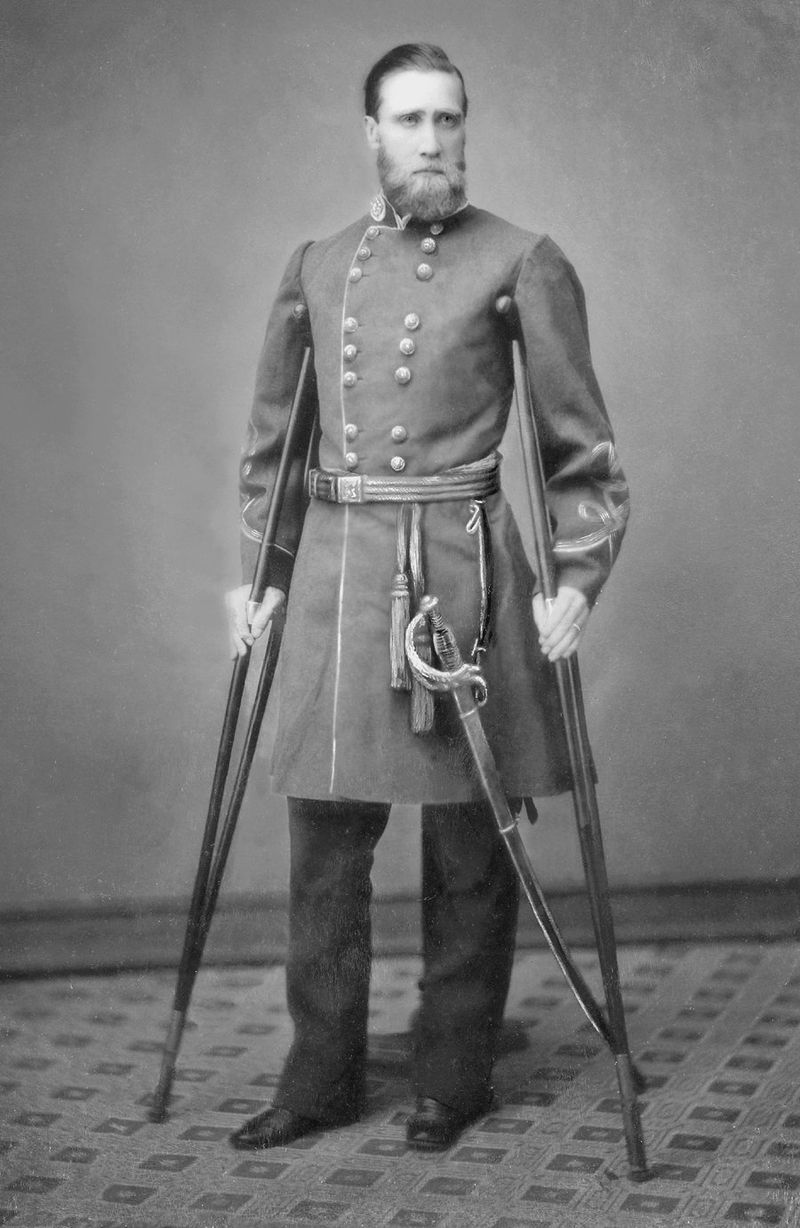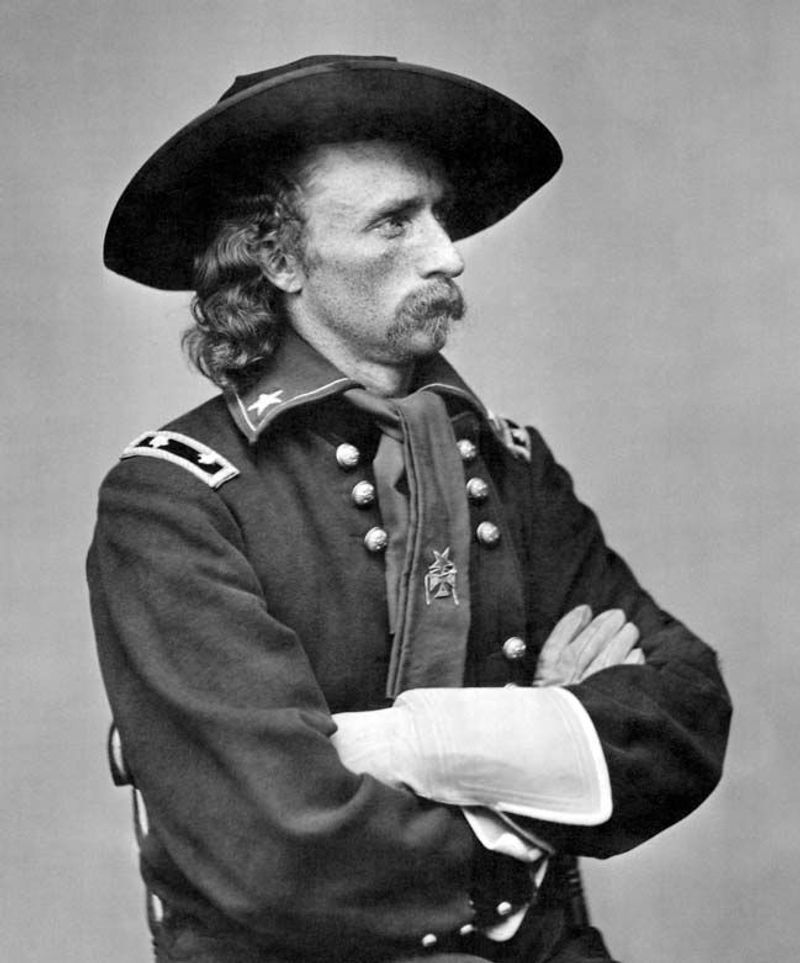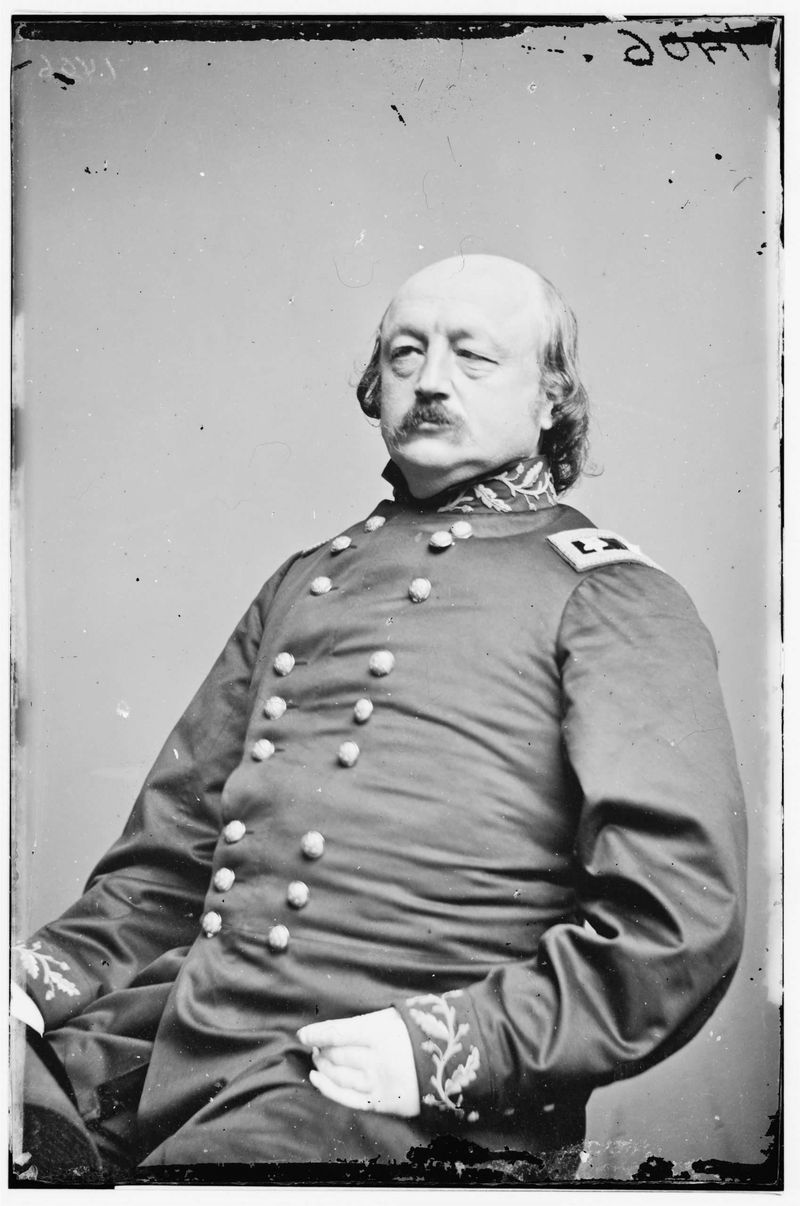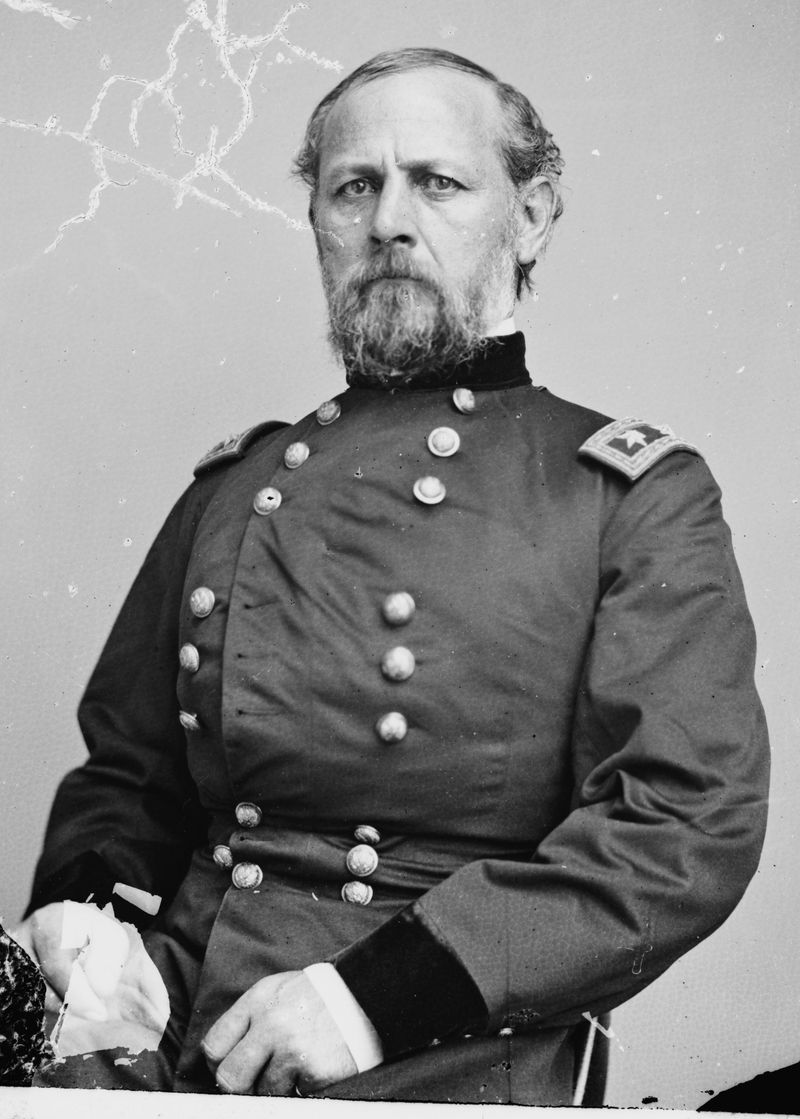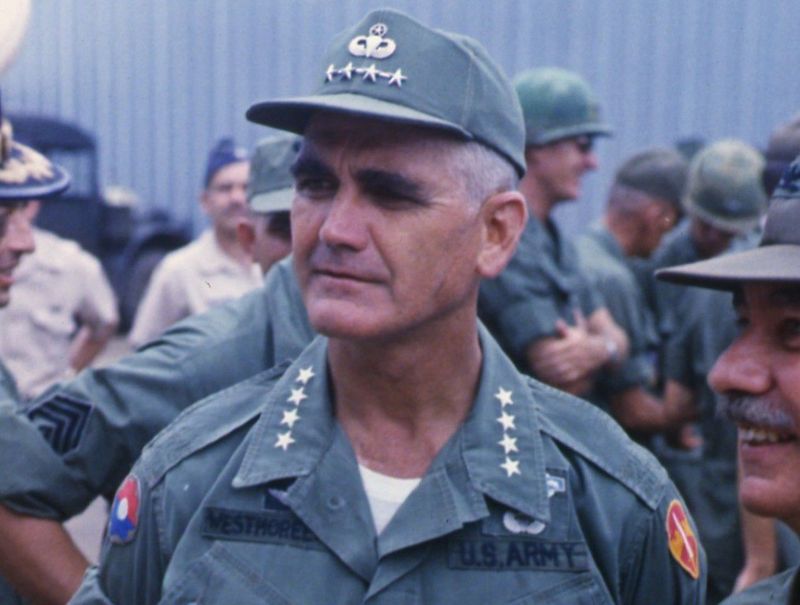American military history is a tapestry woven with the stories of exceptional leaders and those whose stars didn’t shine as brightly. This blog post delves into the 14 most celebrated generals who have shaped the course of American history and examines 9 others who, despite their high rank, fell short of expectations.
From the strategic brilliance of George Washington to the controversial decisions of generals like William Westmoreland, each figure is presented with a unique voice, offering insights into their contributions and missteps.
1. George Washington
Standing tall with a determined gaze, George Washington epitomized resilience and leadership. As the commander of the Continental Army, he led the colonies to victory against a formidable British force, establishing the foundations of the United States military. His calm demeanor under pressure and strategic insight helped him outmaneuver a more experienced enemy. Washington’s ability to inspire loyalty among his troops was unparalleled, making him a central figure in the fight for independence. He set precedents for military leadership that continue to influence the armed forces today.
2. Ulysses S. Grant
Ulysses S. Grant, with his relentless determination, turned the tide for the Union in the Civil War. Known for his aggressive tactics, he orchestrated coordinated offensives that ultimately led to Confederate surrender. As President, Grant played a crucial role in stabilizing the nation during Reconstruction. His leadership style, characterized by bold decision-making and a refusal to back down, has been studied by military strategists for generations. Grant’s legacy is one of strength and perseverance in the face of adversity.
3. Robert E. Lee
A master of battlefield tactics, Robert E. Lee commanded the Confederate Army with unparalleled skill. Despite facing overwhelming odds, his strategic acumen allowed him to win numerous battles. Lee’s ability to inspire his troops and his sense of honor earned him respect even among his adversaries. However, his decision to fight for the Confederacy remains a point of contention. Lee’s legacy is a complex blend of military genius and the moral implications of his choices in a divided nation.
4. William Tecumseh Sherman
With a fierce gaze and unyielding spirit, William Tecumseh Sherman revolutionized warfare with his total-war strategy. His infamous “March to the Sea” crippled the Confederate war effort by targeting infrastructure and disrupting supply lines. Sherman’s tactics, though controversial, were instrumental in hastening the end of the Civil War. His ability to adapt and innovate on the battlefield left a lasting impact on military strategy. Sherman’s legacy is one of bold innovation, though not without its ethical debates.
5. Philip H. Sheridan
Philip H. Sheridan’s energetic leadership and tactical brilliance made him a key figure in the Union victory. As a cavalry commander, his Shenandoah Valley campaigns were pivotal in depriving the Confederacy of crucial resources. Sheridan’s aggressive approach and ability to execute rapid maneuvers played a significant role in dismantling Confederate forces. His endeavors in the post-war era also influenced U.S. military policy. Sheridan’s legacy is marked by his dynamic presence and strategic innovations that continue to be studied.
6. John J. Pershing
With a steely resolve and a strategic mind, John J. Pershing led the American Expeditionary Forces to victory in World War I. Known as “Black Jack,” his leadership was marked by discipline and innovation. Pershing’s ability to unify diverse forces and maintain a strong presence on the European front was critical to the Allies’ success. His influence extended beyond the battlefield, shaping modern military doctrines. Pershing’s legacy is one of pioneering leadership in a global conflict, earning him a revered place in military history.
7. George S. Patton
Bold and audacious, George S. Patton was a larger-than-life figure on the World War II battlefields. His charismatic leadership and tactical genius spearheaded armored breakthroughs across North Africa and Europe. Known for his fiery speeches and unyielding drive, Patton inspired his troops to achieve what seemed impossible. His approach to warfare, characterized by speed and surprise, redefined military operations. Patton’s legacy is one of daring and brilliance, leaving an indelible mark on the history of warfare.
8. Dwight D. Eisenhower
With a calm demeanor and keen strategic insight, Dwight D. Eisenhower orchestrated the Allied victory in Europe. As Supreme Allied Commander, he skillfully coordinated a multinational force for the successful D-Day invasion. Eisenhower’s ability to manage complex logistics and foster international cooperation was instrumental in defeating Nazi Germany. His post-war presidency further cemented his legacy as a leader of vision and stability. Eisenhower’s contributions are celebrated for their strategic brilliance and lasting impact on global affairs.
9. Omar N. Bradley
Known as the “G.I. General,” Omar N. Bradley exemplified careful planning and genuine concern for his troops. His leadership during the Normandy invasion was pivotal to the Allied liberation of Western Europe. Bradley’s ability to coordinate vast army groups while maintaining a focus on soldier welfare earned him immense respect. His post-war career continued to influence U.S. military policy. Bradley’s legacy is marked by his compassionate leadership and strategic acumen, making him a beloved figure in American military history.
10. Douglas MacArthur
Douglas MacArthur’s bold strategies and larger-than-life persona made him a prominent military figure. His defense of the Philippines and leadership during the Korean War showcased his tactical brilliance. The daring Inchon landing turned the tide in Korea, highlighting his innovative approach. However, his insubordination towards civilian leadership led to his dismissal, sparking debate on military authority. MacArthur’s legacy is one of controversy and greatness, with his impact on military strategy still studied today.
11. Matthew B. Ridgway
With a steadfast resolve, Matthew B. Ridgway revitalized U.N. forces during the Korean War. After the Chinese intervention, his leadership restored morale and stabilized front lines. Ridgway’s ability to adapt and inspire his troops under challenging conditions was instrumental in turning the conflict’s tide. His strategic foresight and commitment to his soldiers’ well-being left a lasting impact. Ridgway’s legacy is one of resilience and innovation in the face of adversity, solidifying his place in military history.
12. Norman Schwarzkopf
With a commanding presence, Norman Schwarzkopf, known as “Stormin’ Norman,” brilliantly orchestrated Operation Desert Storm’s ground assault. His meticulous planning and decisive execution led to a swift victory in the Gulf War. Schwarzkopf’s leadership style, marked by confidence and clarity, earned him admiration worldwide. His ability to integrate ground and air operations redefined modern warfare. Schwarzkopf’s legacy is celebrated for its strategic excellence and the decisive end of a complex conflict.
13. David Petraeus
With a keen intellect, David Petraeus engineered the 2007 “surge” strategy in Iraq, blending counterinsurgency with nation-building. His innovative approach marked a doctrinal shift in military operations, aiming to stabilize a war-torn region. Petraeus’s ability to adapt to complex situations and build alliances was pivotal in achieving relative peace. His leadership extended beyond the battlefield, influencing military strategy globally. Petraeus’s legacy is one of transformation and adaptation, leaving a profound impact on modern military thought.
14. Colin Powell
With a strategic mind, Colin Powell shaped post–Cold War military policy as Chairman of the Joint Chiefs. His planning of the Gulf War’s air campaign was instrumental in achieving a swift victory. Powell’s leadership style, marked by clarity and vision, earned him respect across military and civilian spheres. His influence extended beyond the battlefield, impacting global military strategy. Powell’s legacy is one of strategic foresight and leadership excellence, making him a revered figure in modern military history.
1. Irvin McDowell
Irvin McDowell’s cautious approach at the First Bull Run led to a missed opportunity for the Union. His slow advance allowed Confederate forces to concentrate and secure a dramatic victory. McDowell’s lack of decisive action and underestimation of the enemy contributed to his downfall. Despite his efforts, his command was overshadowed by more aggressive Union leaders. McDowell’s legacy is a reminder of the importance of adaptability and decisiveness in military leadership, highlighting the challenges of command.
2. George B. McClellan
George B. McClellan’s tenure as a Union general was marked by cautiousness and missed opportunities. Known for overestimating enemy strength, he repeatedly delayed offensives, frustrating political leaders. Despite commanding large forces, McClellan’s failure to decisively engage Confederate troops led to criticism. His leadership style, characterized by hesitation, stands in stark contrast to more aggressive contemporaries. McClellan’s legacy is one of potential unrealized, serving as a cautionary tale of the perils of indecision in warfare.
3. Ambrose Burnside
Ambrose Burnside is often remembered for his disastrous frontal assault at Fredericksburg. His decision resulted in devastating Union losses without tactical gain. Despite his bravery and dedication, Burnside’s lack of strategic insight led to criticism. The Battle of Fredericksburg serves as a reminder of the importance of adapting tactics to the realities of the battlefield. Burnside’s legacy is a complex mix of valor and misjudgment, highlighting the challenges faced by leaders under pressure.
4. Joseph Hooker
Despite commanding a strong army, Joseph Hooker was outmaneuvered by Robert E. Lee at Chancellorsville. His initial advantages were nullified by Lee’s strategic brilliance. Hooker’s hesitation and lack of decisive action led to a significant Union defeat. His leadership style, marked by cautious optimism, failed to translate into battlefield success. Hooker’s legacy is a reminder of the complexities of command and the fine line between confidence and overconfidence in military leadership.
5. John Bell Hood
Aggressive but often reckless, John Bell Hood’s command decisions led to heavy Confederate losses. His leadership at battles like Franklin and Nashville resulted in devastating defeats. While courageous, Hood’s inability to balance aggression with strategic foresight hindered his effectiveness. His legacy is a complex blend of bravery and tactical missteps, reflecting the challenges of leadership during a tumultuous period. Hood’s story serves as a cautionary tale of the importance of strategic adaptability in warfare.
6. George Armstrong Custer
Impulsive and bold, George Armstrong Custer’s infamous charge at Little Bighorn sealed his fate. His underestimation of Native American forces led to a tragic defeat. Known for his flamboyant style, Custer’s bravado often overshadowed strategic considerations. His legacy is one of daring and downfall, serving as a reminder of the complexities of frontier warfare. Despite his failures, Custer’s story continues to captivate, underscoring the fine line between courage and recklessness in military leadership.
7. Benjamin “Beast” Butler
Known for his harsh civilian policies, Benjamin “Beast” Butler’s military career was marred by controversy. His mismanagement of key operations, such as Bermuda Hundred, drew criticism. Despite his zeal, Butler’s lack of tactical insight led to limited success. His legacy is a contentious one, highlighting the complexities of leadership during a divisive era. Butler’s story serves as a cautionary tale of the challenges faced by those balancing military duty with political considerations.
8. Don Carlos Buell
Don Carlos Buell’s tenure as a Union general was marked by missed opportunities. His slow coordination of logistics and reinforcements at Shiloh and Perryville cost the Union critical advantages. Despite his organizational skills, Buell’s inertia hindered his effectiveness. His legacy is a reminder of the importance of timely decision-making in military leadership. Buell’s story highlights the challenges faced by those navigating the complexities of command during a turbulent era.
9. William Westmoreland
William Westmoreland’s leadership during the Vietnam War was fraught with challenges. Relying on body-count metrics, he struggled to adapt strategy, leading to eroded public support. Despite his efforts, Westmoreland faced criticism for failing to achieve decisive victories. His legacy is a complex one, reflecting the difficulties of modern warfare and the impact of military decisions on public perception. Westmoreland’s story serves as a cautionary tale of the importance of adaptability and innovation in military strategy.
